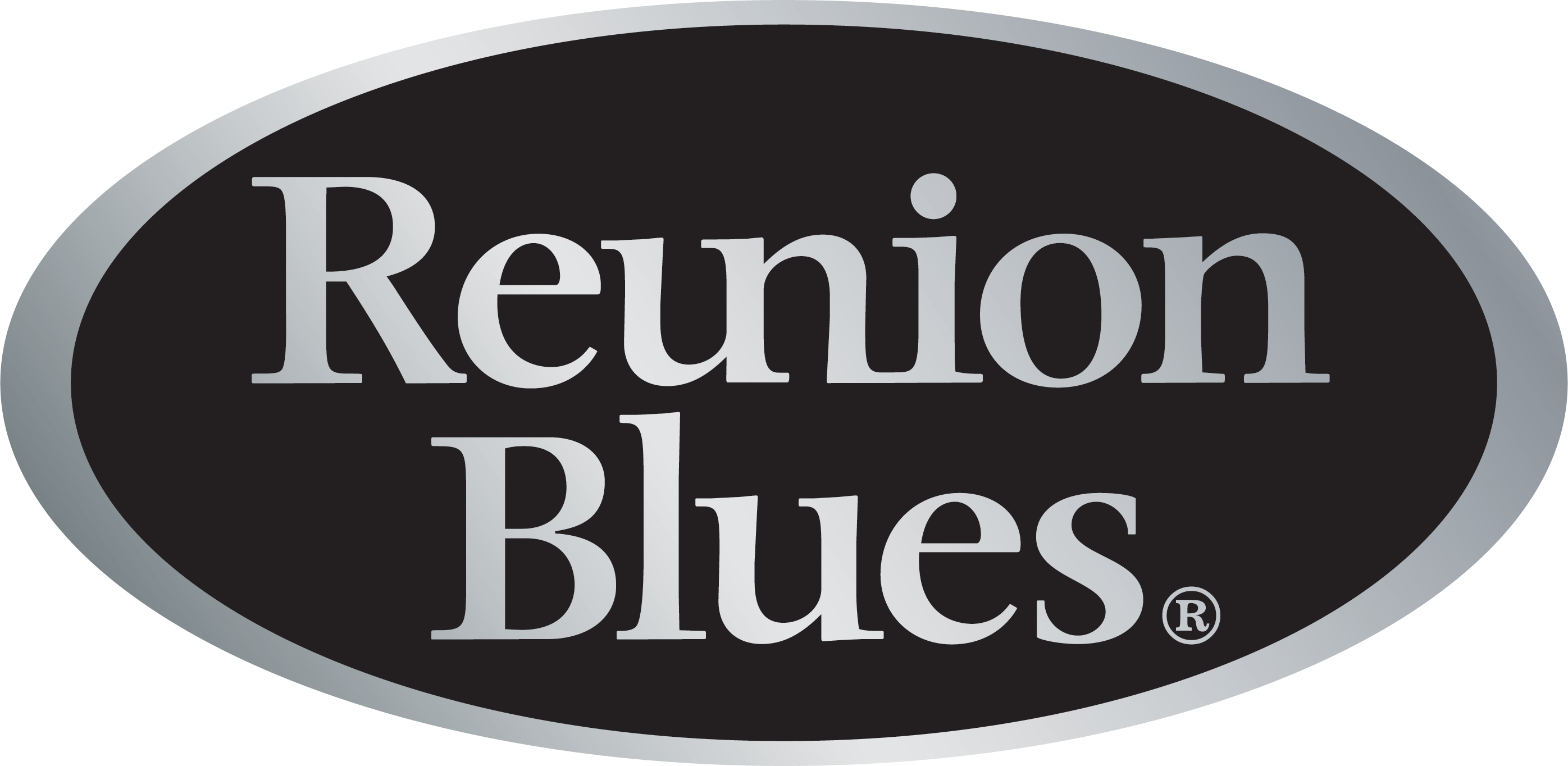
"My poor old hardshell guitar cases . . . they're so empty and lost since I got my Reunion Blues bags!" — Mike Squires, Guitarist, Duff McKagan’s Loaded
"For all of my professional rock life, I always thought a "gig bag" was 1) ugly and 2) unnecessary. That was until I got my hands on a Reunion Blues Double Bass bag! Not only does it look amazing, but it is built like a tank and has saved me hundreds of $ in airplane luggage fees. I use it religiously and so should you! Thank you Reunion Blues!!!" — Jeff Rouse, Bassist, Duff McKagan’s Loaded
"From his glam-haired rhythm section tenure in behemoth group Guns N’ Roses to his earnest and honest solo output, Duff McKagan reflects on his growth to Steven Loftin.
For the best part of six decades, the songwriter, bassist, writer, broadcaster, financier, and just about anything else he fancies turning his hand to, has been a transient figure. Taking himself from a burgeoning punk scene in his hometown of Seattle in such cherished groups such as The Fartz and 10 Minute Warning – where he rubbed shoulders and shared spots with the likes of Sub Pop co-founder Bruce Pavitt and Pearl Jam members Stone Gossard and Jeff Ament – eventually down to LA in the ‘80s, it was here that he met up with a now-famed gang of ruffians, forming one of rock music’s immovable titans.
Through the LA hard rock scene with Guns N’ Roses, he made it out the other side of stadiums and clubs (including founding post-millennium hard rock revivalists Velvet Revolver with Guns bandmate Slash, alongside late Stone Temple Pilots frontman Scott Weiland), as well as an endless list of collaborators and icons who’ve sought McKagan’s touch, from Iggy Pop and Ozzy Osbourne to Macy Gray. Becoming a renowned voice for sobriety and general wellbeing, his two memoirs - It's So Easy (And Other Lies) (2011), and How to Be a Man (And Other Illusions) (2015) - are personally cherished tomes that feature everything from addiction to raising children and masculinity. Suffice it to say, McKagan has seen it all.
His most recent output was his third studio album, Lighthouse, last October – with an expanded version released earlier this year. On top of that, he’s celebrating the fifth anniversary of his second solo album Tenderness with a live version recorded in 2019, as well as an upcoming US tour. It’s here he excitedly sparks up with some classic McKagan hometown pride: “I’ve got a really good band, it’s an exclusive Seattle-guys band this time around,” he says. “There’s so many good players in Seattle, that I'm excited to bring that out and go, ‘This is what we have in Seattle’. They're all killer.”
The morning I speak to him from his home, he’s spent it curating his radio playlist with his wife for the show they cohost on Planet Rock (Three Chords & The Truth) – it would seem that life for McKagan is good.
Having penned pages on his life so far, McKagan is no stranger to delving into his past, warts and all. But it becomes apparent that, creatively speaking, being tasked with picking his choice cuts is a new endeavour for him. The way McKagan has navigated life is similar to his approach to his Personal Best. It’s a list of songs that string together his musical map, each plucked from his mind as an instant reaction to these segments of his life. “It's not often I get asked to pick five songs from my own catalogue. As a matter of fact, never,” he chuckles. “So I thought I would just do the first ones that came to my head, and these were the ones that came. I wasn't trying to paint a theme to them all.”
Across his selected output comes a story of a man with a dream that comes to fruition faster and blurrier than anyone could have imagined, as decades pass before it’s time to turn inwards. Even with a still as-yet unreleased solo album Beautiful Disease, set for release in 1996 after his ‘93 debut, Believe In Me, but was lost during his label’s merger, McKagan’s opinion on what his output is building is a wry shrug: “Shit, I don't know what I'm doing,” he laughs. “I'm writing songs. I'm writing the next song in front of me.” Being able to re-home one of these lost tracks (“Hope” featuring Slash) after finally getting his masters back in 2020, with the promise of more of this buried treasure surfacing, he reveals, “There's another song called ‘Undone’ from that batch that I may put on my next record, it's cool and it sounds like the shit I'm doing now. All I have to do is re-sing it so my voice sounds the same. This was in ‘96… I still had a lot of cocaine residue. I was 2 years sober, you can hear it, it's like, ‘Oh, Jesus. You sound like you have a cold!’ [Laughs]”
But with us passing through his musical journey in five songs, his personal development comes to light. He brings it all together: “I'm 60 now, so I can start to look back,” he mentions, the dots appearing that inevitably connected throughout his life. “And go, ‘Okay, that happened because of this and this and the other,’ right, and I'm very appreciative.” From physically listening to his instruments, to his ever-expanding songwriting craft that succinctly wraps up his musical life to date: “You discover all kinds of tricks, but they're not tricks… They’re just discoveries.”
Read More of Steven Loftin's | THE LINE of BEST FIT interview with Duff McKagan here!
Duff McKagan
"My poor old hardshell guitar cases . . . they're so empty and lost since I got my Reunion Blues bags!" — Mike Squires, Guitarist, Duff McKagan’s Loaded
"For all of my professional rock life, I always thought a "gig bag" was 1) ugly and 2) unnecessary. That was until I got my hands on a Reunion Blues Double Bass bag! Not only does it look amazing, but it is built like a tank and has saved me hundreds of $ in airplane luggage fees. I use it religiously and so should you! Thank you Reunion Blues!!!" — Jeff Rouse, Bassist, Duff McKagan’s Loaded
"From his glam-haired rhythm section tenure in behemoth group Guns N’ Roses to his earnest and honest solo output, Duff McKagan reflects on his growth to Steven Loftin.
For the best part of six decades, the songwriter, bassist, writer, broadcaster, financier, and just about anything else he fancies turning his hand to, has been a transient figure. Taking himself from a burgeoning punk scene in his hometown of Seattle in such cherished groups such as The Fartz and 10 Minute Warning – where he rubbed shoulders and shared spots with the likes of Sub Pop co-founder Bruce Pavitt and Pearl Jam members Stone Gossard and Jeff Ament – eventually down to LA in the ‘80s, it was here that he met up with a now-famed gang of ruffians, forming one of rock music’s immovable titans.
Through the LA hard rock scene with Guns N’ Roses, he made it out the other side of stadiums and clubs (including founding post-millennium hard rock revivalists Velvet Revolver with Guns bandmate Slash, alongside late Stone Temple Pilots frontman Scott Weiland), as well as an endless list of collaborators and icons who’ve sought McKagan’s touch, from Iggy Pop and Ozzy Osbourne to Macy Gray. Becoming a renowned voice for sobriety and general wellbeing, his two memoirs - It's So Easy (And Other Lies) (2011), and How to Be a Man (And Other Illusions) (2015) - are personally cherished tomes that feature everything from addiction to raising children and masculinity. Suffice it to say, McKagan has seen it all.
His most recent output was his third studio album, Lighthouse, last October – with an expanded version released earlier this year. On top of that, he’s celebrating the fifth anniversary of his second solo album Tenderness with a live version recorded in 2019, as well as an upcoming US tour. It’s here he excitedly sparks up with some classic McKagan hometown pride: “I’ve got a really good band, it’s an exclusive Seattle-guys band this time around,” he says. “There’s so many good players in Seattle, that I'm excited to bring that out and go, ‘This is what we have in Seattle’. They're all killer.”
The morning I speak to him from his home, he’s spent it curating his radio playlist with his wife for the show they cohost on Planet Rock (Three Chords & The Truth) – it would seem that life for McKagan is good.
Having penned pages on his life so far, McKagan is no stranger to delving into his past, warts and all. But it becomes apparent that, creatively speaking, being tasked with picking his choice cuts is a new endeavour for him. The way McKagan has navigated life is similar to his approach to his Personal Best. It’s a list of songs that string together his musical map, each plucked from his mind as an instant reaction to these segments of his life. “It's not often I get asked to pick five songs from my own catalogue. As a matter of fact, never,” he chuckles. “So I thought I would just do the first ones that came to my head, and these were the ones that came. I wasn't trying to paint a theme to them all.”
Across his selected output comes a story of a man with a dream that comes to fruition faster and blurrier than anyone could have imagined, as decades pass before it’s time to turn inwards. Even with a still as-yet unreleased solo album Beautiful Disease, set for release in 1996 after his ‘93 debut, Believe In Me, but was lost during his label’s merger, McKagan’s opinion on what his output is building is a wry shrug: “Shit, I don't know what I'm doing,” he laughs. “I'm writing songs. I'm writing the next song in front of me.” Being able to re-home one of these lost tracks (“Hope” featuring Slash) after finally getting his masters back in 2020, with the promise of more of this buried treasure surfacing, he reveals, “There's another song called ‘Undone’ from that batch that I may put on my next record, it's cool and it sounds like the shit I'm doing now. All I have to do is re-sing it so my voice sounds the same. This was in ‘96… I still had a lot of cocaine residue. I was 2 years sober, you can hear it, it's like, ‘Oh, Jesus. You sound like you have a cold!’ [Laughs]”
But with us passing through his musical journey in five songs, his personal development comes to light. He brings it all together: “I'm 60 now, so I can start to look back,” he mentions, the dots appearing that inevitably connected throughout his life. “And go, ‘Okay, that happened because of this and this and the other,’ right, and I'm very appreciative.” From physically listening to his instruments, to his ever-expanding songwriting craft that succinctly wraps up his musical life to date: “You discover all kinds of tricks, but they're not tricks… They’re just discoveries.”
Read More of Steven Loftin's | THE LINE of BEST FIT interview with Duff McKagan here!






